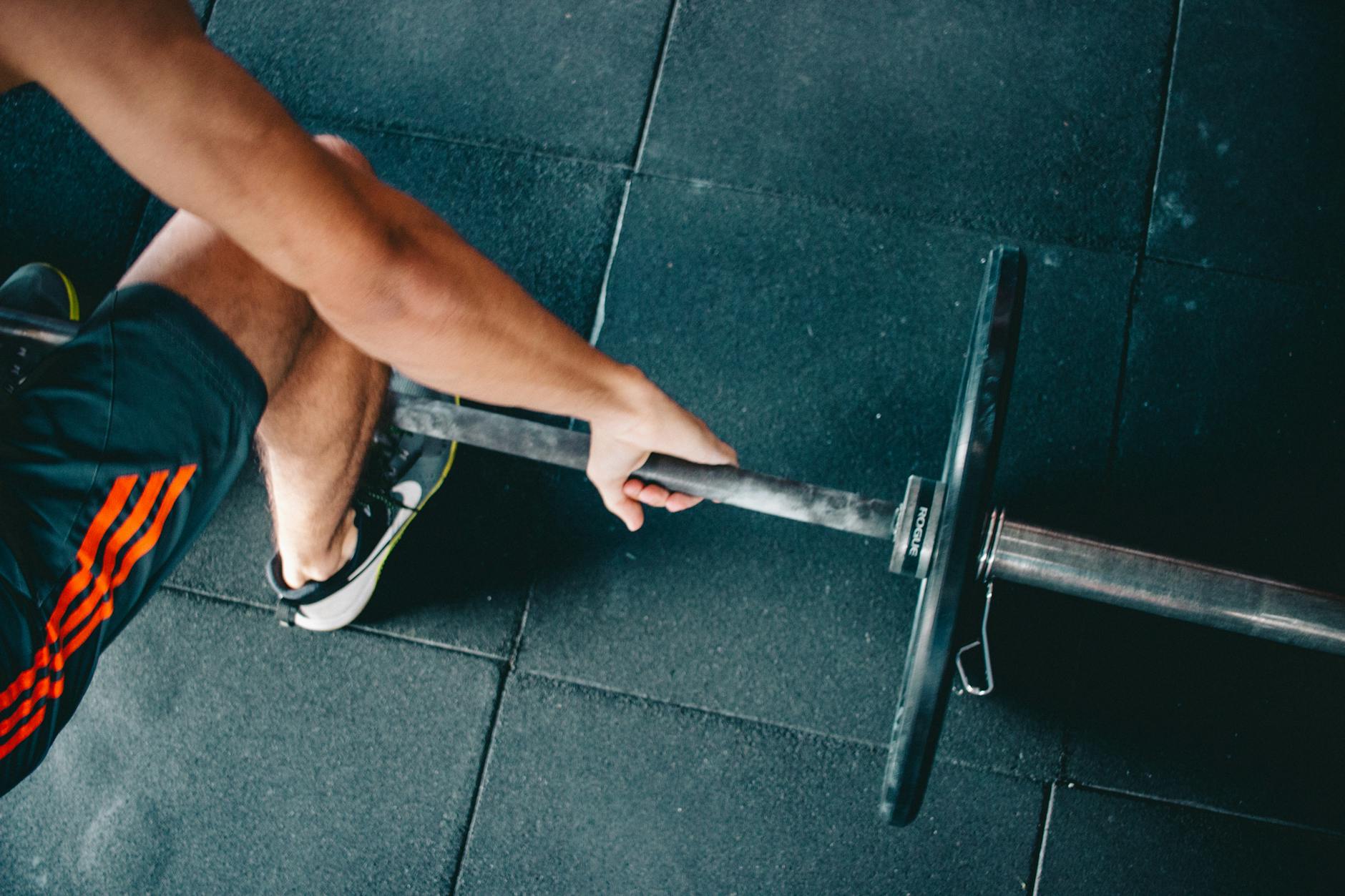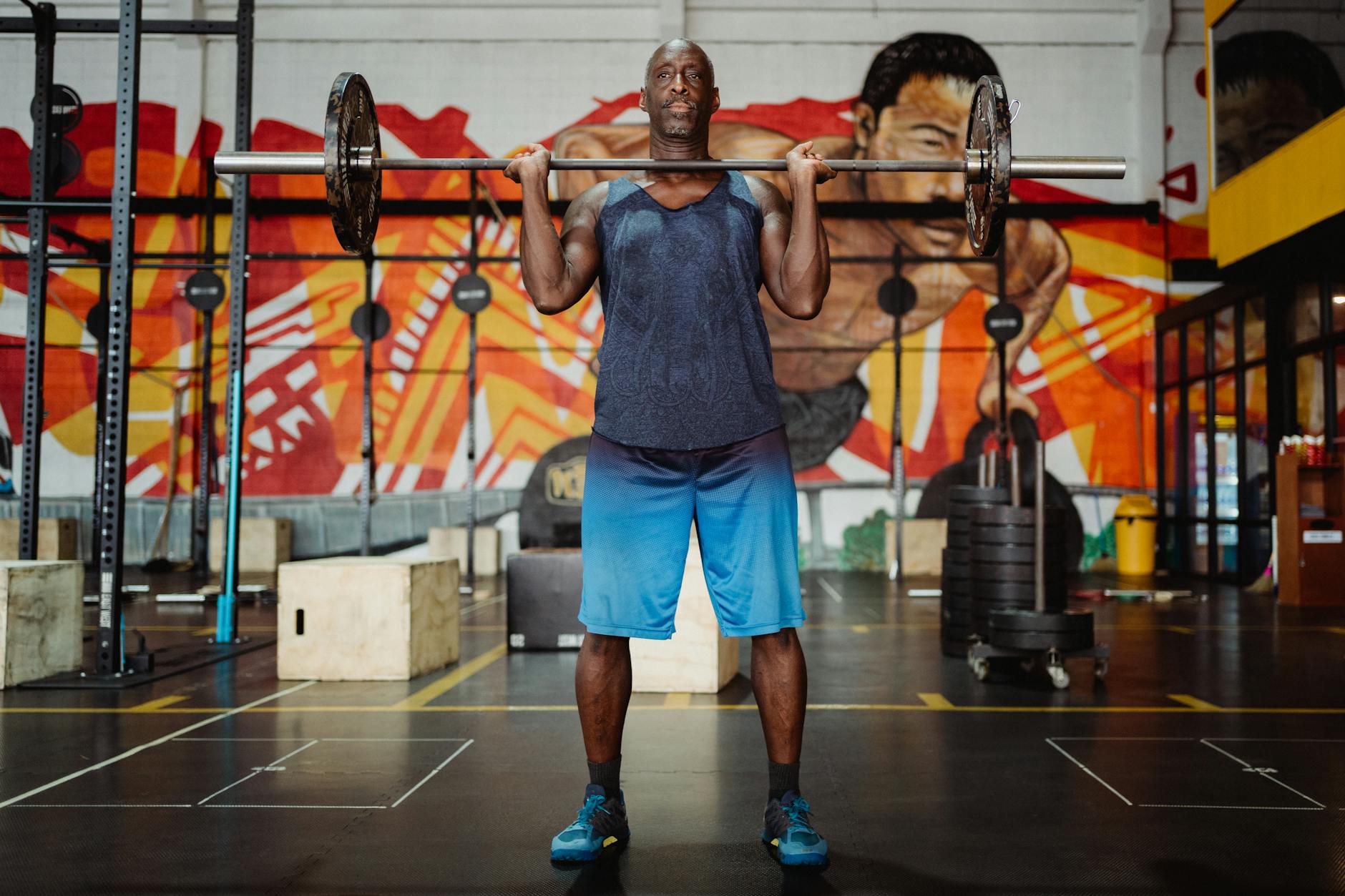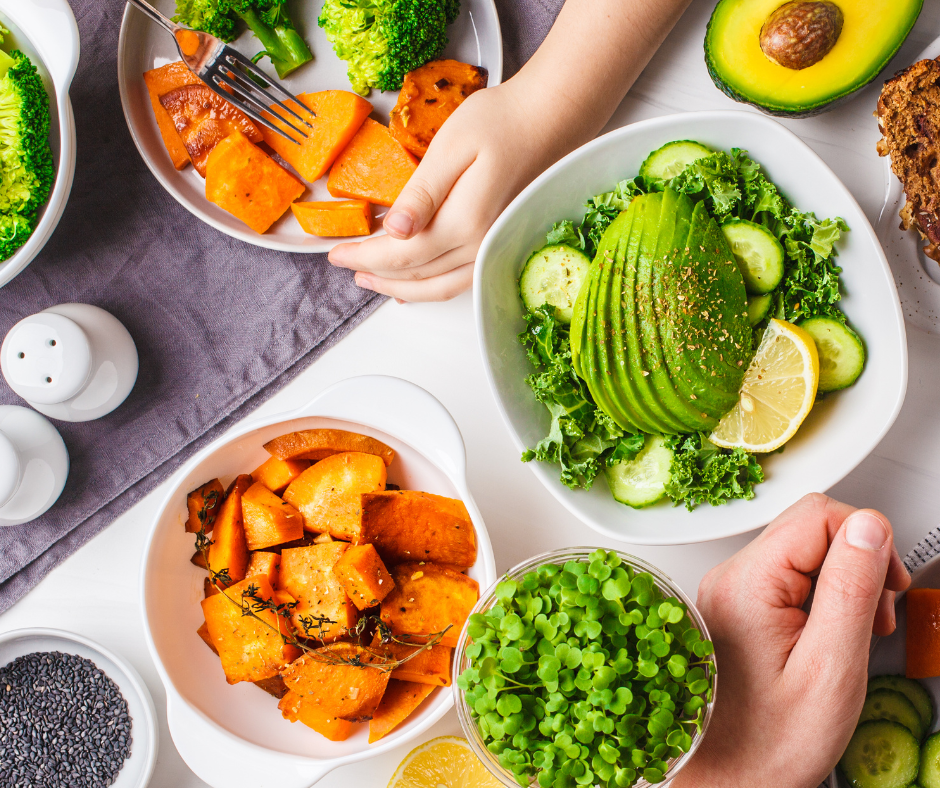Carbs often get a bad reputation, but when it comes to building muscle, they’re your best ally. They’re not just about energy; they directly fuel intense workouts and help your muscles recover afterward. Without enough carbs, your body struggles to perform at its peak, and recovery slows down, making it harder to see progress. Understanding how to time and choose the right carbs can make all the difference in achieving your fitness goals. Let’s break down why this macronutrient is essential for muscle growth and how to make it work for you. Understanding the role of carbs for muscle growth can help optimize your fitness journey.
The Science Behind Carbohydrates and Muscle Growth
When building muscle, fueling your body with the right nutrients is crucial. Carbohydrates play a starring role, not just in providing energy for tough workouts but also in promoting muscle recovery and aiding the growth process. Let’s explore how carbs contribute to your fitness goals. The right carbs for muscle growth provide energy for intense workouts and faster recovery.
How Carbohydrates Fuel Workouts
Carbohydrates break down into glucose, which your body stores as glycogen in your muscles and liver. During exercise, especially intense sessions like resistance training or sprinting, glycogen is your muscles’ go-to energy source. Without adequate glycogen, fatigue sets in quicker, reducing performance. Choosing complex carbs for muscle growth ensures sustained energy and improved endurance. Athletes rely on quality carbs for muscle growth to fuel their performance and strength.
Think of glycogen as the “battery pack” for your muscles. When you lift weights or do high-intensity cardio, your body taps into these reserves. Simply put, without enough glycogen, your muscles can’t work as hard or for as long. Proper intake of carbs for muscle growth enhances protein synthesis and muscle repair. Research supports that carbohydrates are the preferred fuel for high-intensity activities because they provide rapid energy. Learn more about carbohydrate fueling here.
Carbohydrates and Protein Synthesis
Muscle growth happens when protein synthesis exceeds protein breakdown. Here’s where carbs step in to assist. Consuming carbs alongside protein can significantly reduce muscle protein breakdown by increasing insulin levels. Insulin, often called the “storage hormone,” facilitates the uptake of nutrients, including amino acids, into your muscles. Timing your carbs for muscle growth around workouts can improve muscle glycogen levels.
Timing your carbs for muscle growth around workouts can improve muscle glycogen levels. This anabolic environment is essential post-workout because it primes your body for repair and growth. Studies suggest combining carbs with protein after exercise can amplify the muscle-rebuilding process. Whole grains, fruits, and legumes are excellent sources of carbs for muscle growth. This article explores the relationship between carbs and protein synthesis, shedding light on how carbs optimize protein’s muscle-building benefits.
The Role of Glycogen in Muscle Recovery
After a grueling workout, your glycogen reserves are depleted, leaving your muscles tired and unable to perform at their peak. Replenishing these stores is vital. This is why athletes and fitness enthusiasts often consume carbohydrate-rich meals or shakes right after exercising. A balanced diet with adequate carbs for muscle growth supports long-term fitness goals.
The replenishment process is what primes your muscles for the next training session, supporting better recovery and improved performance over time. Simple and complex carbs for muscle growth play different roles in energy production. Foods like bananas, rice, or even sports drinks can help restore glycogen efficiently. Explore more about glycogen and recovery here.
Carbs aren’t just energy fuel. They’re actively involved in keeping your muscles powered, breaking down less, and recovering faster. Proper carb intake can make the difference between a plateau and new personal bests in your fitness journey. Post-workout carbs for muscle growth help replenish glycogen stores for better recovery.
Types of Carbohydrates for Muscle Growth
Carbohydrates aren’t created equal, and understanding the different types can significantly impact your muscle-building progress. Whether you’re fueling a workout, recovering post-training, or planning your meals, matching the right carbs to your goals is key. Consuming high-fiber carbs for muscle growth improves digestion and nutrient absorption.
Complex Carbohydrates

Photo by Tima Miroshnichenko
Think of complex carbohydrates as the slow-burning fuel your muscles need to go the distance. These carbs are packed with fiber, vitamins, and minerals, making them a staple for sustained energy during prolonged workouts. Athletes should prioritize slow-digesting carbs for muscle growth to maintain energy levels.
Key sources of complex carbs include:
- Oats: Great for breakfast or pre-workout meals. Rich in fiber and slow to digest.
- Brown Rice: A versatile option to pair with lean proteins for steady energy.
- Sweet Potatoes: A nutrient-dense carb loaded with antioxidants and perfect for replenishing glycogen stores.
These complex carbs take longer to break down, providing a steady release of glucose into your bloodstream. Meal planning with the right carbs for muscle growth ensures consistent muscle gains. This means you can avoid energy crashes and power through strength sessions or high-volume training. Learn more about the best carbs for muscle building here.
Simple Carbohydrates
Simple carbohydrates often get a bad rap, but they have their place in a muscle-building plan, especially right after a workout. Unlike complex carbs, simple carbs are digested quickly, leading to a rapid increase in blood sugar levels. This makes them ideal for immediate energy replenishment. Ignoring carbs for muscle growth can lead to muscle loss and decreased performance.
Top sources of simple carbs include:
- Fruits: Bananas, oranges, and berries provide natural sugars and essential nutrients.
- Dextrose: Found in many recovery drinks, it’s perfect for an instant glycogen refill.
Post-workout, your muscle glycogen stores are depleted, and your body is primed to absorb nutrients. By consuming simple carbs during this window, you can kickstart recovery and reduce fatigue. Here’s a deeper look at the benefits of post-workout carbs.
High Glycemic vs Low Glycemic Index Carbohydrates
The glycemic index (GI) measures how quickly a carbohydrate-containing food raises blood sugar levels. Understanding when to choose high-GI or low-GI carbs can optimize energy levels and muscle growth. Liquid carbs for muscle growth, like smoothies, provide quick energy and easy digestion.
When to choose high-GI carbs:
- Post-Workout: Foods like white rice or sports drinks will quickly replenish glycogen stores.
- During Endurance Training: Snack on high-GI carbs to keep energy levels stable during long sessions.
When to prioritize low-GI carbs:
- Pre-Workout: Foods like quinoa or whole-grain bread provide sustained energy without blood sugar spikes.
- Throughout the Day: Low-GI carbs, such as legumes and vegetables, help maintain consistent energy and provide long-lasting nutritional benefits.
If you’re selective with your carb timing and choices, you can boost both performance and recovery. More information on the glycemic index can be found here.
By tailoring your carbohydrate intake to your training and recovery needs, you can fuel your workouts, replenish energy efficiently, and ultimately maximize muscle growth. Smart snacking with healthy carbs for muscle growth prevents energy crashes during workouts.
Cheapest Sources Of High Quality Protein: Eat Healthy Without Breaking the Bank – Discover budget-friendly protein options to stay healthy and strong without overspending! Click to learn more.
Timing Your Carb Intake for Optimal Results
When it comes to fueling your muscles and boosting recovery, timing your carb intake is just as important as the type of carbs you consume. Strategically eating carbs around your workouts can turn a taxing session into a growth opportunity. Let’s break down how to make the most of your carb intake with pre-workout, post-workout, and carb cycling strategies. Understanding glycemic index helps in selecting the best carbs for muscle growth.
Pre-Workout Carb Consumption

Photo by Soundarapandian MS
Fueling your body with carbs before a workout enhances performance by providing your muscles with the energy they need to push through demanding sets. Carbs increase glycogen stores, which act as your primary energy reserve during intense exercise. Think of glycogen as the “fuel tank” that powers strength and endurance. Natural sources of carbs for muscle growth are superior to processed and refined options.
Research suggests that a pre-workout meal or snack containing both carbs and protein consumed 1-3 hours before training can boost energy levels and delay fatigue. Options like oatmeal with fruit, whole-grain toast with banana, or a simple smoothie can set you up for success. Learn more about pre-workout nutrition.
Don’t forget hydration—it’s essential to pair your carbs with enough water. This keeps your muscles hydrated and helps glycogen storage function correctly during your workout. Endurance athletes need a higher intake of carbs for muscle growth and sustained activity.
Post-Workout Carb Strategies
After a tough training session, your muscles are like a sponge ready to soak up nutrients. Consuming carbs immediately after a workout replenishes glycogen stores, kickstarts recovery, and supports muscle repair. This is especially crucial after high-intensity or longer-duration sessions. Combining protein and carbs for muscle growth enhances overall strength and recovery.
Post-workout carbs aren’t just about restoring energy; they also work alongside protein to amplify muscle repair. Insulin, triggered by carb consumption, accelerates nutrient delivery to your muscles, making it an essential part of the post-workout window. The right balance of carbs for muscle growth helps in building lean muscle mass. Aim for 1-1.2 grams of carbs per kilogram of body weight within an hour of training.
Good post-workout carb options include:
- White rice or potatoes paired with a lean protein source.
- Smoothies with fruit and a scoop of whey protein.
- Recovery drinks that mix carbs and protein.
Find out more about post-workout strategies for recovery.
Carb Cycling for Muscle Gains
Carb cycling involves alternating between high-carb and low-carb days based on your training intensity. On heavy lifting days, higher carb intake replenishes glycogen and helps fuel demanding workouts. On rest or lower-intensity days, reducing carbs allows your body to burn stored fat instead. Athletes should consume enough carbs for muscle growth to prevent muscle breakdown.
This approach has been a favorite among bodybuilders and fitness enthusiasts for years because it balances muscle growth with fat loss. Some of the benefits include:
- Optimized energy for intense training.
- Improved fat burning during rest or light activity.
- Better control over body composition.
For example, a weekly plan might look like this:
- High-Carb Days: Consume more carbs (like oats, rice, or pasta) on heavy training days to fuel your session and recovery.
- Low-Carb Days: Stick to fibrous veggies and lean protein on rest days or light cardio sessions.
Learn more about carb cycling and how it supports your fitness goals.
By fine-tuning when and how you consume carbs, you can maximize your workouts, speed up recovery, and effectively manage your energy levels for consistent progress.
How Much Carbohydrate Do You Need?
Carbohydrates are a powerhouse fuel source for anyone looking to pack on muscle or maintain size while cutting down. They don’t just provide energy—they actively support recovery, strength, and performance when used strategically. Let’s break down how much you need based on your current fitness phase and training style. Pre-workout meals rich in carbs for muscle growth provide sustained energy for training.
Carbohydrates for Bulking

Photo by Victor Freitas
When you’re bulking, your goal is clear: consume more calories than you expend to gain muscle. Carbs are a significant driver here, making up at least 50-60% of your caloric intake. Why? Because they’re your body’s preferred fuel for high-intensity training. The harder you train, the more carbs your muscles need. Complex carbs for muscle growth, like quinoa and brown rice, support long-lasting stamina.
Carbs during a bulk:
- Replenish glycogen stores: This ensures you’re always fully fueled for every workout.
- Spare protein for muscle repair: With enough carbs, your body won’t break down protein for energy.
- Boost training performance: Higher energy availability means you can lift heavier and train longer.
Guidelines often recommend starting around 4-7 grams of carbs per kilogram of body weight daily, with adjustments based on your metabolism and activity level. For example, a 70-kg athlete might aim for 280-490 grams of carbs daily. Check out more about carb intake for bulking here.
Carbohydrates for Cutting
Cutting requires precision. You’re creating a calorie deficit to lose fat, but you still want to preserve muscle. Carbs are lower during this phase compared to bulking, but dropping them too much can hinder performance and muscle retention. Low-carb diets can hinder muscle development, making carbs for muscle growth essential.
How do carbs help during a cut?
- Protect muscle mass: By providing just enough energy, your body doesn’t pull from muscle stores.
- Enhance recovery: After workouts, carbs ensure your muscles maintain their glycogen stores so you can recover effectively.
- Prevent fatigue: A moderate carb intake keeps your mental and physical energy stable during a calorie deficit.
Start by reducing carbs slightly—around 2-5 grams per kilogram of body weight per day—and observe how your body responds. For instance, a 70-kg individual might target 140-350 grams daily. Low-carb diets aren’t always superior, especially for lifters who train intensely. Learn more about carbs and body composition here.
Carb Needs Based on Training Intensity
Your carbohydrate intake should fluctuate with the intensity and type of workouts you’re doing. Think of it like fueling a car: the faster and harder you drive, the more fuel you burn. Carbs for muscle growth play a key role in replenishing muscle glycogen after exercise.
Here’s how to approach it:
- High-Intensity Training (HIT): Activities like bodybuilding, CrossFit, or sprinting heavily deplete glycogen stores. Aim for 5-7 grams of carbs per kilogram of body weight on training days. Complex carbs (like oats or sweet potatoes) work great for sustained energy.
- Moderate Intensity Training: If you’re doing lower-intensity strength or endurance work, you might need 3-5 grams of carbs per kilogram of body weight. Include a mix of complex and simple carbs before and after your session.
- Rest Days or Low Activity: Cut back to 2-4 grams per kilogram, focusing on fibrous vegetables and other low-GI carbs. This keeps your metabolic rate sharp without excessive caloric intake.
Matching your carb intake to your training intensity not only optimizes performance but also prevents unwanted fat gain during off days. Dive deeper into carbs for training here.
By tailoring your carbohydrate intake to your fitness phase and workout style, you’ll maximize muscle growth, recovery, and overall performance. Starchy vegetables like sweet potatoes are great sources of carbs for muscle growth.
Common Myths About Carbohydrates and Muscle Growth
Carbohydrates have been misunderstood in the fitness and nutrition world for far too long. While they’re often blamed for everything from weight gain to poor health, these claims are usually rooted in half-truths or outright myths. When it comes to muscle growth, carbs are absolutely essential, and misconceptions can derail your progress. Let’s set the record straight.
Myth 1: Low-Carb Diets Are Best for Building Muscle

Photo by HONG SON
Low-carb diets are popular among those aiming to shed fat, but they’re far from ideal for muscle growth. Why? Carbs are your muscles’ primary energy source. They fuel your workouts, maximize recovery, and help you build the strength needed to stack on size.
When you lift weights or engage in resistance training, your muscles rely heavily on glycogen—stored glucose from carbs. If your glycogen stores are low, fatigue sets in faster, your performance drops, and you miss your peak potential. A low-carb diet simply doesn’t provide the energy reserves you need for consistent progress.
Additionally, carbs are “protein-sparing,” meaning your body prioritizes glycogen for energy instead of breaking down muscle proteins. This is crucial if your goal is muscle preservation while increasing strength. Research emphasizes that combining adequate carb intake with training can optimize athletic performance. Learn more about carbs and muscle-building benefits.
Myth 2: Simple Carbs Should Always Be Avoided
Many people villainize simple carbohydrates, assuming they’re always harmful. While it’s true that overconsumption of sugary junk food should be avoided, simple carbs can play a strategic role in muscle growth, especially when consumed at the right time.
Simple carbs, like fruits or recovery drinks containing dextrose, are easily digested and quickly spike your blood sugar. This makes them perfect for post-workout nutrition. After an intense session, your body needs rapid glycogen replenishment to jumpstart recovery. Simple carbs paired with protein create the ideal environment for muscle repair and growth.
For example, having a banana or a fruit smoothie right after a workout can help replenish your depleted energy stores and reduce muscle protein breakdown. To put it plainly, simple carbs are like a fast-charging battery for your muscles. Discover more about timing your carb intake effectively.
Myth 3: All Carbs Lead to Fat Gain
It’s easy to see why some believe carbs inevitably lead to weight gain. But carbohydrates in themselves aren’t the enemy—calorie balance is what really matters.
Here’s how it works: if you consume more calories than you burn, you’ll gain weight, regardless of whether those calories come from carbs, protein, or fats. Similarly, if you’re in a calorie deficit, you’ll lose weight even while eating carbs. The key is understanding your energy needs and managing portion sizes.
Carbs play an essential role in fueling workouts and aiding recovery. When consumed appropriately—aligned with your activity levels—they support muscle growth and performance without excess weight gain. Focusing on quality carbs, like whole grains, legumes, fruits, and vegetables, provides sustained energy and keeps you feeling full longer.
Studies show that consistent overconsumption, not any one nutrient, leads to fat gain. For athletes and weightlifters, carbs are more friend than foe when paired with a structured nutrition plan. Explore more about carb myths and truths.
Dispelling these myths not only clears up confusion but also empowers you to use carbs in a way that fuels your training and improves your results. Instead of fearing carbohydrates, learn how to harness their benefits for maximal muscle-building success.
Best Food Sources of Carbohydrates for Muscle Growth
When it comes to building muscle, carbs are more than just a calorie source; they’re the backbone of your energy, recovery, and overall performance in the gym. Choosing the right carb sources can give you the edge for muscle growth while enhancing your nutrition. Let’s dive into the best food sources you can incorporate into your diet plan.
Grains and Cereals

Photo by Ketut Subiyanto
Grains and cereals pack a powerful punch when it comes to fueling your workouts. They’re not just energy-rich; they’re loaded with essential nutrients like fiber, vitamins, and minerals that promote overall health and sustained energy levels. Here are some top picks:
- Oatmeal: A morning staple that’s rich in complex carbs and dietary fiber. Oats are perfect for sustained energy, making them ideal for breakfast before a long or intense gym session.
- Quinoa: Often labeled a “superfood,” quinoa is gluten-free, high in protein, and packed with all nine essential amino acids. It’s a nutrient powerhouse that doubles as a carb and protein source. Learn more about its benefits here.
- Brown Rice: A versatile grain perfect for meal prep. Brown rice provides slow-digesting carbs, helping you maintain energy levels throughout your day. For a nutritional comparison with quinoa, click here.
These grain-based carbs will not only fuel your workouts but also aid in replenishing glycogen stores essential for muscle recovery.
Fruits
Fruit may not be the first thing you think of when it comes to muscle-building carbs, but they offer simple, fast-digesting sugars that can be perfect during and after workouts. On top of that, fruits are dense with vitamins, minerals, and antioxidants that support overall health.
- Bananas: Known for their potassium content, bananas are a quick source of carbs that help fuel workouts and aid recovery by reducing muscle cramps.
- Berries: Loaded with antioxidants, berries like blueberries and raspberries help combat exercise-induced oxidative stress while providing natural sugars for energy.
Fruit is nature’s candy, but it also performs like premium fuel for your workouts. Incorporate fruits for quick energy and added hydration through their high water content.
Starchy Vegetables
Starchy vegetables are a dietary cornerstone for anyone looking to gain muscle. They’re incredibly versatile, making them easy to include in various meals.
- Potatoes (White and Sweet): Potatoes are excellent sources of carbs. Sweet potatoes, in particular, are also rich in vitamins like vitamin A and have a lower glycemic index, offering a steady energy release.
- Squash: Options like butternut squash provide natural sweetness, fiber, and a solid dose of complex carbs to keep you fueled.
These vegetables are easy to prepare and pack nutrients that go beyond carbohydrates, adding vitamins and minerals to your muscle-building diet.
Legumes
Legumes are an underrated but highly effective food group when it comes to carb sources. They’re dual-purpose: rich in both complex carbs and plant-based protein.
- Lentils: High in carbs, fiber, and protein, lentils are perfect for keeping your blood sugar stable while fueling muscle recovery.
- Chickpeas: Whether roasted as a snack or blended into hummus, chickpeas are a versatile carb source that delivers on protein and essential nutrients like folate and magnesium.
Legumes provide a one-two punch of energy and muscle-building capability. Plus, their fiber content helps with digestion and satiety. For more information on carb-rich foods for muscle-building diets, check out this resource.
Incorporating these carbohydrate-rich foods into your daily diet ensures you’re fueling your body effectively for intense training and muscle growth. Rotate these options to keep your meals exciting and nutrient-dense. Remember: carbs aren’t the enemy; they’re an essential ally in your muscle-building journey.
Conclusion
Carbohydrates are your muscle-building powerhouse, providing the energy needed to crush workouts, recover faster, and sustain muscle growth. Skimping on them can hold you back, while eating them strategically can take your progress to the next level.
Pay attention to the timing, type, and amount of carbs you consume. Whether you’re fueling an intense session or recovering afterward, carbs play a key role in optimizing your results.
Don’t let outdated myths deter you—make informed choices that align with your training and goals. Now it’s your turn: what’s your go-to carb source for muscle growth? Drop a comment and share your thoughts!


